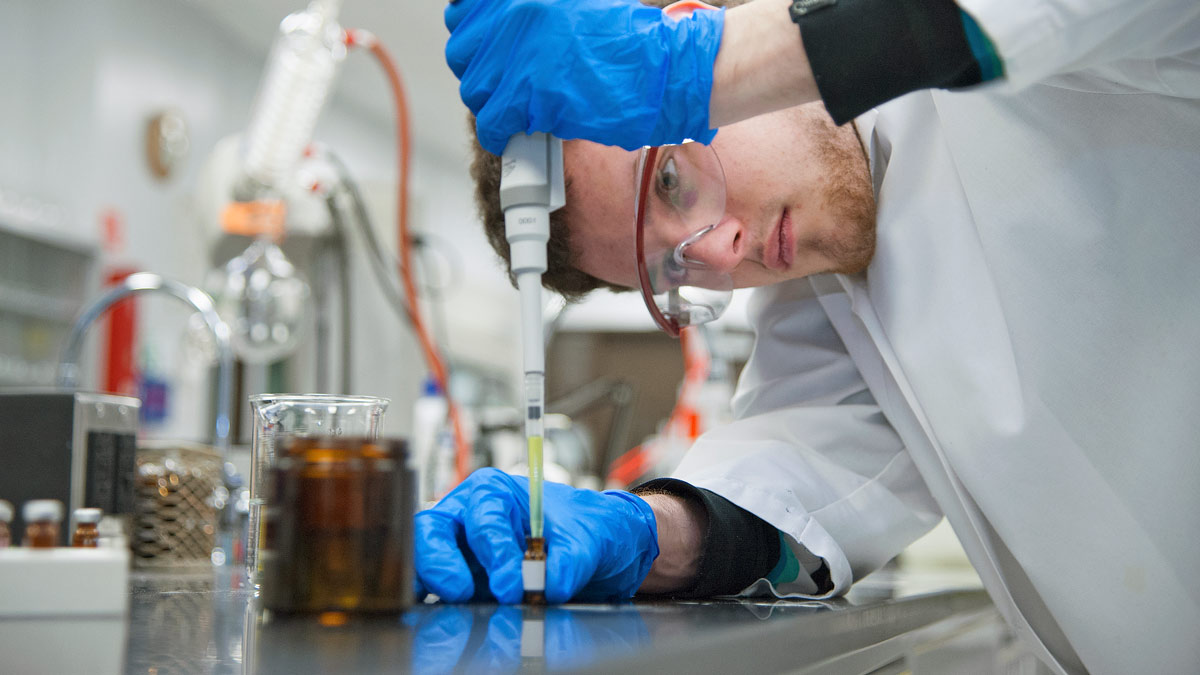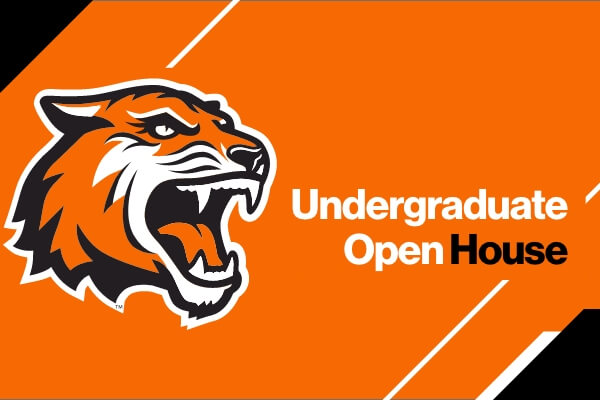Laboratory Science Technology Associate in Applied Science Degree

Laboratory Science Technology
Associate in Applied Science Degree
- RIT /
- National Technical Institute for the Deaf /
- Academics /
- Laboratory Science Technology AAS
Discover the science behind the scenes with an AAS program in Laboratory Science Technology. Unlock scientific secrets.
Overview for Laboratory Science Technology AAS
The laboratory science technology program, with its foundation of course sequences in chemistry, biology, and instrumental analysis, was developed primarily from an industry perspective to prepare students for employment as laboratory technicians. The program has several significant factors that set it apart, including the application of real-world analyses and a state-of-the-art instrumentation laboratory. Graduates are prepared to work in a broad range of fields, including chemical, biological, biotechnical, pharmaceutical, environmental, industrial, forensic, and food analysis. This program is available for qualified deaf and hard of hearing students.
If you're interested in doing scientific analysis and lab work in chemical, biological, biotechnical, pharmaceutical, environmental, forensic, food or industrial fields, then the laboratory science technology program is for you. You will study in laboratory settings with experienced faculty and learn to use state-of-the-art laboratory equipment for scientific analysis. Our advanced, high-tech analytical instrumentation is equivalent to that used by scientists on the job. You get hands-on experience using this instrumentation daily.
Laboratory science technology, offered by RIT's National Technical Institute for the Deaf, is available as an associate in applied science (AAS) degree or as an Associate+Bachelor’s Degree Program.
The AAS degree in laboratory science technology is a career-focused degree program that leads to immediate entry into well-paying careers at the paraprofessional or technician level in municipal, public, private and industrial laboratories. Technicians are involved with the collection and preparation of samples and standards. They also perform instrumental, volumetric, gravimetric, and biological analyses. Additional job responsibilities may include the interpretation and reporting of experimental results and data.
The Associate+Bachelor's Degree Program in laboratory science technology prepares you to complete an RIT bachelor’s degree. In this option, upon successful completion of the AAS in laboratory science technology, provided you maintain a 3.0 or higher grade point average, you will have several bachelor’s degree options from which to choose. You can enroll in RIT’s School of Individualized Study, where you can pursue a bachelor’s degree in the individualized program. Or you may enroll in RIT’s College of Science, where you can work towards a bachelor’s degree in biochemistry, biology, biotechnology and molecular bioscience, chemistry, or environmental science. Qualified laboratory science technology students also have continued their education in other majors in RIT’s College of Science and College of Health Sciences and Technology upon completion of the laboratory science technology program. The length of time required to obtain a bachelor’s degree upon completion of the AAS program and the number of credits transferred from the laboratory science technology curriculum vary by program.
Learn more about the benefits of pursuing an Associate+Bachelor’s Degree Program.
-
Meet us on campus
Learn about academics, co-op and internships, financial aid, and more at one of our on-campus open houses.
October 13 | October 25 | November 8
Careers and Cooperative Education
Typical Job Titles
| Laboratory Technician | Quality Control Specialist | Assistant Research |
| Development Scientist |
Industries
-
Biotech and Life Sciences
-
Chemical
-
Consumer Packaged Goods
-
Environmental Services
-
Food and Beverage
-
Manufacturing
-
Oil and Gas
-
Pharmaceuticals
Cooperative Education
Cooperative education, or co-op for short, is full-time, paid work experience in your field of study. And it sets RIT graduates apart from their competitors. It’s exposure–early and often–to a variety of professional work environments, career paths, and industries. RIT co-op is designed for your success.
Students in the laboratory science technology program are required to complete a cooperative education work experience prior to graduation. You may schedule your co-op after completing your second-year academic requirements.
Curriculum for 2025-2026 for Laboratory Science Technology AAS
Current Students: See Curriculum Requirements
Admissions and Financial Aid
For the career-focused AAS Degree
- 2 years of math required
- 1 year of science required
- English language skills as evidenced by application materials determine associate degree options.
For the AAS Degree Leading to Bachelor’s Degree (Associate+Bachelor’s Program)
- 2 years of math required; students interested in engineering, math and science transfer programs should have three or more years of math.
- 1 year of science required; students interested in engineering, math and science transfer programs should have two or more years of science.
- Physics is recommended for students interested in engineering.
- English language skills as evidenced by application materials determine associate degree options.
Specific English, Mathematics, and Science Requirements and other Recommendations
- English: Placement into NENG-121 Bridge to Academic Literacies or above, including into a University Writing (UWRT) course. To earn the AAS degree, students must complete all necessary English coursework through UWRT-150 FYW: Writing Seminar.
- Mathematics: Placement in Integrated Algebra (NMTH-212) or higher. Typically, students entering this major will have completed at least three years of high school mathematics.
- Science: Typically, students entering this major will have completed at least two years of high school science. Completion of high school chemistry is required.
- ACT (optional): The ACT middle 50% composite score is 18-21.
Financial Aid and Scholarships
100% of all incoming first-year and transfer students receive aid.
RIT’s personalized and comprehensive financial aid program includes scholarships, grants, loans, and campus employment programs. When all these are put to work, your actual cost may be much lower than the published estimated cost of attendance.
Learn more about financial aid and scholarships
Accreditation
Contact
- Austin Gehret
- Department Chair
- Department of Science and Mathematics
- National Technical Institute for the Deaf
- 585‑475‑3971
- augnts@rit.edu
Department of Science and Mathematics






